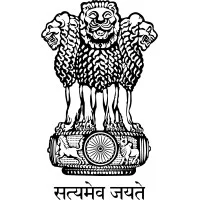Indian Constitution- Procedure Generally
PART VI
THE STATES
CHAPTER III.- THE STATE LEGISLATURE
Procedure Generally
208. Rules of procedure.—
(1) A House of the Legislature of a State may make rules for regulating, subject to the provisions of this Constitution, its procedure and the conduct of its business.
(2) Until rules are made under clause (1), the rules of procedure and standing orders in force immediately before the commencement of this Constitution with respect to the Legislature for the corresponding Province shall have effect in relation to the Legislature of the State subject to such modifications and adaptations as may be made therein by the Speaker of the Legislative Assembly, or the Chairman of the Legislative Council, as the case may be.
(3) In a State having a Legislative Council the Governor, after consultation with the Speaker of the Legislative Assembly and the Chairman of the Legislative Council, may make rules as to the procedure with respect to communications between the two Houses.
209. Regulation by law of procedure in the Legislature of the State in relation to financial business.—The Legislature of a State may, for the purpose of the timely completion of financial business, regulate by law the procedure of, and the conduct of business in, the House or Houses of the Legislature of the State in relation to any financial matter or to any Bill for the appropriation of moneys out of the Consolidated Fund of the State, and, if and so far as any provision of any law so made is inconsistent with any rule made by the House or either House of the Legislature of the State under clause (1) of article 208 or with any rule or standing order having effect in relation to the Legislature of the State under clause (2) of that article, such provision shall prevail.
210. Language to be used in the Legislature.—
(1) Notwithstanding anything in Part XVII, but subject to the provisions of article 348, business in the Legislature of a State shall be transacted in the official language or languages of the State or in Hindi or in English:
Provided that the Speaker of the Legislative Assembly or Chairman of the Legislative Council, or person acting as such, as the case may be, may permit any member who cannot adequately express himself in any of the languages aforesaid to address the House in his mother-tongue.
(2) Unless the Legislature of the State by law otherwise provides, this article shall, after the expiration of a period of fifteen years from the commencement of this Constitution, have effect as if the words “or in English” were omitted therefrom:
Provided that in relation to the 2 [Legislatures of the States of Himachal Pradesh, Manipur, Meghalaya and Tripura] this clause shall have effect as if for the words “fifteen years” occurring therein, the words “twenty-five years” were substituted:
Provided further that in relation to the Legislatures of the States of Arunachal Pradesh, Goa and Mizoram, this clause shall have effect as if for the words "fifteen years" occurring therein, the words "forty years" were substituted.
211. Restriction on discussion in the Legislature.—No discussion shall take place in the Legislature of a State with respect to the conduct of any Judge of the Supreme Court or of a High Court in the discharge of his duties.
212. Courts not to inquire into proceedings of the Legislature.—
(1) The validity of any proceedings in the Legislature of a State shall not be called in question on the ground of any alleged irregularity of procedure.
(2) No officer or member of the Legislature of a State in whom powers are vested by or under this Constitution for regulating procedure or the conduct of business, or for maintaining order, in the Legislature shall be subject to the jurisdiction of any court in respect of the exercise by him of those powers.



